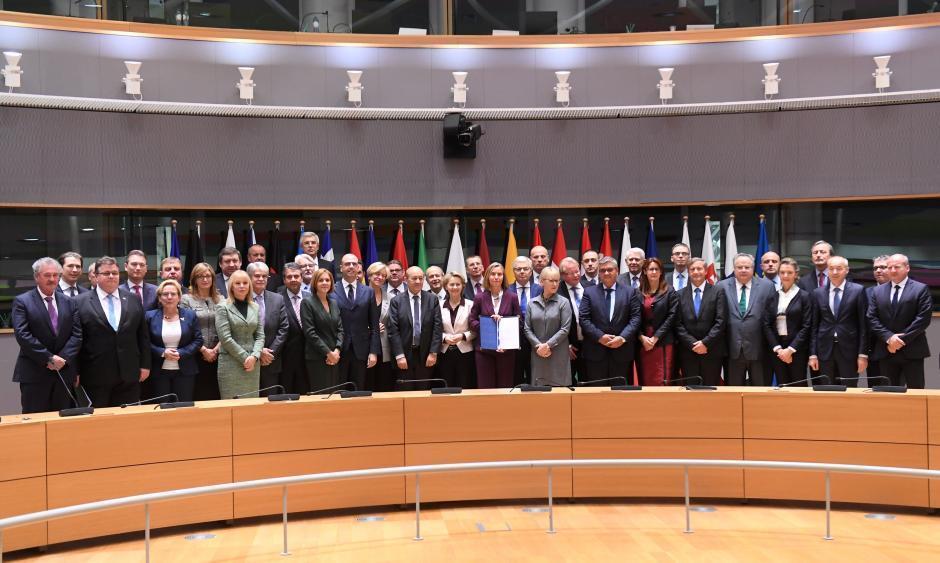
The EU took a step towards closer defense ties yesterday, with 23 states signing a landmark pact aiming to boost cooperation after Brexit and as Russia flexes its muscles to the east.
The permanent structured cooperation on defense agreement (PESCO) seeks to improve EU coordination on defense and weapons systems development.
It is part of efforts led by Germany and France to reboot the European Union after Britain’s shock decision to quit and follows the announcement in June of a 5.5-billion euro ($6.4 billion) European Defense Fund.
The EU’s diplomatic chief Federica Mogherini hailed the agreement as “a new page of European defense,” saying countries had already proposed more than 50 projects.
Similar efforts to deepen military links have been frustrated for decades, partly by Britain’s fierce opposition to anything that might lead to a European army.
But Brexit and Russia’s annexation of Crimea in 2014 has once again brought the need for a strong European security stance back into focus.
The shift in U.S. policy under President Donald Trump -- who berated European partners on military spending at a NATO summit in May -- has also led many to question whether Washington can be relied upon to protect Europe as it has in the past.
“It was important for us especially after the election of the American president that we can organize ourselves independently as Europeans,” German Defense Minister Ursula von der Leyen said.
“This is complementary to NATO, but we also see that nobody will solve the security problems that Europe has in its neighbourhood -- we have to do it ourselves.”
NATO will retain its primary role, but Mogherini said the EU could offer resources the alliance does not have, such as navigating security and development issues in Africa.
PESCO could, in theory, lead to the creation of a European operational headquarters or logistics base, but will first focus on projects to develop new military equipment such as tanks or drones.
The agreement commits countries to “regularly increasing defense budgets in real terms” as well as devoting 20 percent of defense spending to procurement and two percent on research and technology.
Mogherini said that by coordinating their efforts, European countries would get better value for money in defense.
“The real issue is not how much we spend but the fact we spend in a fragmented manner,” she said.